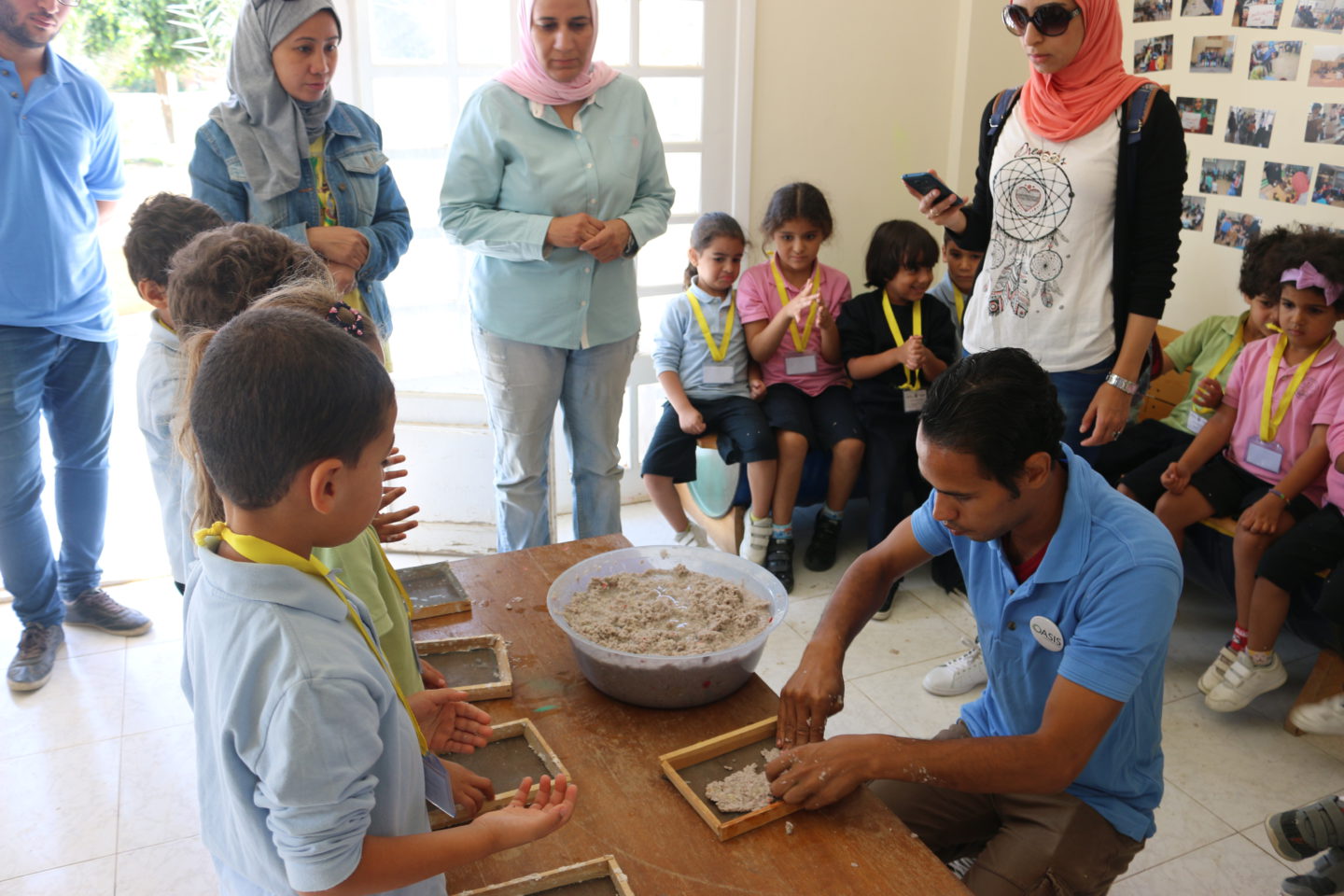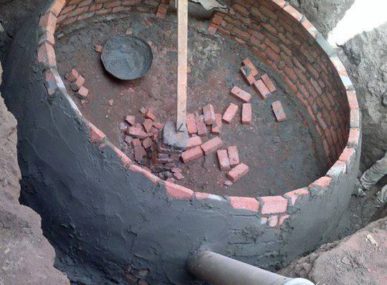“Sustainability is not something that can only be taught in school. We cannot live without being environmentally active, without knowing how dangerous it is to use so much plastic,” says Bahgat of the camp.
At night, students camp under the stars in tents they put up that morning. “They learn to depend on themselves, and become more independent,” says Bahgat of the experience.
She has seen that self-sufficiency and entrepreneurial thinking paralleled in her own kids. This year, her eldest son won an entrepreneurial prize at The American University in Cairo, and she says it has been incredible to witness the indirect learning they get from helping around the center. “They are identifying the problems, and are seeing how to fix them,” Bahgat notes.
The support and structure needed to succeed:
Bahgat is also undergoing learning experiences of her own. She has spent the last year refining her business plan as part of SwitchMed’s green entrepreneur incubation program.
“When I find things like this, I always look at the age first,” she says, explaining that many programs often target young entrepreneurs. The green incubation program is for innovators of all ages. “I loved that the training was extremely flexible. The camp work is not 9-to-5, so this was important.”
Before the incubation phase, Bahgat says she was thinking only of the environment, rather than the leadership it would take to achieve her goals. “Putting the business plan in front of my eyes made my decisions easier and more informed. I used to do this through intuition, but now I know who my stakeholders and clients are, and the channels I use to reach them.”
“She did a great job compiling the bits and pieces of her business plan into a single, consistent document,” says Peter Nasr, a freelance SwitchMed trainer and one of Bahgat’s facilitators in the program. “Oasis Community Center has a very promising potential in Egypt. It is a one-of-a-kind community that educates youth about sustainability and other green-related matters that the country needs.”
Bahgat brings the same values of business incubation to her own team. She has deliberately chosen six employees who are entrepreneurs or who have an entrepreneurial mindset, and provides them training through the Oasis Community Center’s network. The Oasis Community Center also runs leadership and sustainability workshops in collaboration with Leadership Factory, a Cairo-based training center for young entrepreneurs.
With her center, Bahgat wants to be at the forefront of the “green wave” happening in Egypt. “I’m making my own environment with very small groups, but we need a big community that can really affect the ways of others,” Bahgat says.
Activating that community is her next goal. Turns out, she may be the perfect person to build an oasis of entrepreneurship in Egypt, just as she did with her center in the desert.
Find out more about the Oasis Community Center through their Facebook page.
Images: Courtesy of Oasis Community Center.









